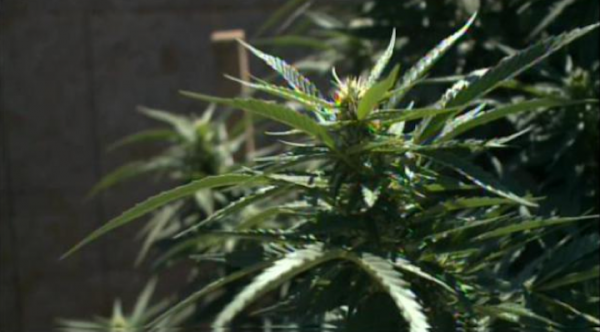By Andrew Gobin, Tulalip News
With the legalization of marijuana for recreational use in Washington State an ongoing discussion has emerged on the Tulalip Indian reservation about how the law will affect the Tulalip Tribes, if at all. Currently, marijuana remains illegal on the reservation in all forms, in accordance with federal policy. More than 100 people attended a community meeting on May 16, urging Tulalip to review its stance on marijuana, and consider whether the financial and medical benefits outweigh the potential risks that could jeopardize the tribes’ relationship with the federal government. A panel of experts made presentations at the meeting, speaking about the pros and cons associated with marijuana. The experts were; former Seattle Police Chief Norm Stamper, a proponent for legalizing or decriminalizing, and Officer Patrick Slack of the Snohomish County Drug Task Force, who gave a testimony to the use of marijuana in our community today.
“I do subscribe to the idea that the reefer madness propaganda of the 1930s created an unnecessary fear of marijuana,” began Norm Stamper, giving a brief historical overview of marijuana in America.
He said, “Marijuana prohibition has, in my view, done more harm than good. It causes more crime. Anyone who traffics in marijuana is a criminal, anyone who buys it is a criminal, and anyone who grows it. Sellers will arm themselves to protect their investments. We force people to seek out dealers, and they won’t card, they will sell to children. All too often they sell marijuana laced with harder drugs to cultivate a future customer. If it is legal, it can be controlled. We can regulate it, sell it, and use the money to fight it.”
That idea was well received at the meeting, as people spoke highlighting other drugs that plague the Tulalip community.
“It helps people stay away from that other stuff [meth and heroin]. We have a store out here, if we sell it we would have more money to treat other people that are on that stuff,” said tribal member Richard Jones.
An overwhelming majority of people in attendance echoed the potential use of marijuana as a safer means for addicts to get clean and stay clean, as well as the medical benefits marijuana users enjoy.
Patrick Slack did not take a stance on the matter, though he shared his experience with marijuana through his years on the police force which gave great insight to the history of marijuana culture and what it has become today.
He said, “There are many cannabinoids in marijuana that are beneficial. In my experience, most people smoke marijuana for the psychoactive experience, not the health benefits. Tetrahydrocannabinol, THC, is the psychoactive cannabinoid that gives users that signature euphoria from marijuana consumption.”
Historically, the THC in marijuana averaged less than two percent. According to Slack, what is being taken off the streets today ranges between twenty percent up to the mid-thirties. Something becoming more prevalent today is hash oil; also called dabs or budder. Through a reduction process using butane or octane (gasoline), people can pull more of the THC out of marijuana.
“The hash oil averages about ninety percent pure THC. It gets you very high, very fast, and is potentially dangerous to use because the effects last longer,” Slack explained.
Tulalip councilman Marlin Fryberg Jr. said, “For me as a leader, who looks out for the youth? That’s my responsibility. If legalizing marijuana will have a negative impact on them, then I can’t support it.”
Stamper noted, “People like Richard Nixon, JFK, Bill Gates, even Barack Obama have tried marijuana. Those people, had they been caught as a result of their youthful indiscretions, as Nixon called it, would not have enjoyed the careers they did, and we would not be enjoying the benefits of their success.”
Slack addressed the difference of underage use today than in Nixon’s time, and the implication from Initiative 502, the ballot measure that legalized marijuana for recreational use in Washington State.
“I502 makes the consumption marijuana illegal to persons under the age of 21, specifying that there is no tolerance for underage consumption. That means if you are driving and you get stopped, if you are suspected of marijuana use, and you are underage, then you will be subject to a blood test. If cannabinoids are found in your blood, you are guilty of a DUI (Driving Under the Influence), whether or not you are under the legal limit of five nanograms. That’s a felony. And today, that limits your ability to get scholarships, go to college, and get a job.”
The legalization of marijuana is a tumultuous issue that has many potential ripple effects for tribes which would extend far beyond the business and moral aspects, should they choose to legalize. For Tulalip tribal leaders, they are torn on the issue.
Tulalip tribal councilwoman Theresa Sheldon said, “Our grants require us to be in compliance with federal policy. NAHASDA (The Native American Housing Assistance and Self Determination Act) for example explicitly says that the tribe’s program must comply with the all federal policies; that includes policies regarding drugs. Marijuana is still classified as a schedule 1 controlled substance at the federal level. It is unclear how legalization will affect our programs, but it is something that we need to understand fully before we proceed.”
“When it comes to medical marijuana, I am there,” said councilman Fryberg. “I’ve done a lot of research, and it took me some convincing, but I’m there. I don’t support the recreational use, though, and I don’t know that I ever will.”
Whether tribes decriminalize or legalize, the decision will have federal implications. The community and some tribal leaders seem to agree though, that the time has come to recognize marijuana as a medicine. What that means for regulation remains to be seen.
Andrew Gobin is a staff reporter with the Tulalip News See-Yaht-Sub, a publication of the Tulalip Tribes Communications Department.
Email: agobin@tulalipnews.com
Phone: (360) 716.4188






